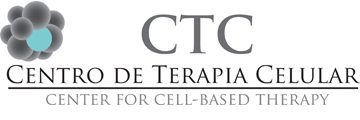FVIII
The Center is also focused on the development of new recombinant coagulation factors (such as FVII, FVIII and FIX) with improved properties. The platform to produce these new recombinant proteins is based on human cell lines that are able to secrete proteins with the same glycosylation pattern found in the plasma derived coagulation factors. Moreover we are developing synthetic FVIII cDNA containing mutations that reduce the immunogenicity of the human recombinant protein.
Molecular Diagnostic Tests: HTLV, parvovirus B19, Cytomegalovirus (CMV), and Mycoplasma
Nucleic Acid Testing (NAT) will be developed for detection of transfusion-transmitted infectious diseases such as human T lymphotropic cell virus (HTLV), and human parvovirus B19. Molecular diagnosis methods also include citomegalovirus (CMV) and mycoplasma detection for cellular products that are relevant to the cell therapy in accordance with GMP and hemotherapy needs.
Since 2010, a partnership with Gene ID S/A Company that operates on the DNA analysis market, focused on human and animal identification (genotyping) and diagnosis (infectious and genetic disorders) will allow the developing of innovative products for molecular diagnosis. For example, HTLV-1/2 confirmatory diagnosis has been done by serology assays, which turns high rate of inconclusive results. The objective of this cooperation is to develop a commercial confirmatory diagnostic test for HTLV-1/2. This project was approved by Fundo Nacional de Desenvolvimento Científico e Tecnológico – FNDCT, November 2010 (Process 1387/10).
Blood Group genotyping
Blood group genotyping is a useful tool to solve inconclusive phenotypes in transfusion medicine. Our Center developed in house genotyping methods applying since conventional PCR methods to a robust and automated protocols including allelic discrimination by real time PCR. Clinically important blood group systems are genotyped such as Rh, Kell, Duffy, MN, Diego, and Kidd.
Stem cell transplantation
The Center’s experience in innovation acquired in the last 11 years resulted in the establishment of an Apheresis Laboratory, a Cryobiology Laboratory, an Umbilical Cord Blood Bank, and a GMP Cell Culture facility, that work in a routine basis, allowing the execution of stem cell clinical trials, such as: 1, autologous hematopoietic stem cell transplantation in patients with hematological malignancies (lymphoma, leukemia, aplastic anemia) or autoimmune diseases (type 1 diabetes, multiple sclerosis, systemic sclerosis); 2, mesenchymal stem cells infusion in patients with inflammatory (such as severe graft-versus-host disease, GVHD) and autoimmune diseases (such as, type 1 diabetes mellitus).
Scale-up processes for therapeutic cells.
As more cell-based therapeutics progress toward clinical testing, the development of reproducible, robust and efficient process for a large-scale cell production becomes an imperative. Bioreactors allows for translating research-based experimental processes into scalable cell-production processes in a safe and cost-effective manner. The development of bioprocesses for large-scale production of cells already in clinical use such as mesenchymal stem cells (MSCs), T lymphocytes, promising cell candidates such as iPS (induced pluripotent stem cells) or platelets and erythrocytes derived from embryonic stem cells.
NAT
Nucleic acid amplification test (NAT) represents a strategy to reduce current risk of the blood supply. NAT has the ability to detect the presence of viruses’ nucleic acid directly from plasma samples, and its efficacy contributes to decrease the immunological window period from 22 to 11 days for HIV and from 70 to 12 days for HCV. Since 2009, an in house NAT for HIV and HCV was developed in our Center and is available for routine screening of all blood donor components.
